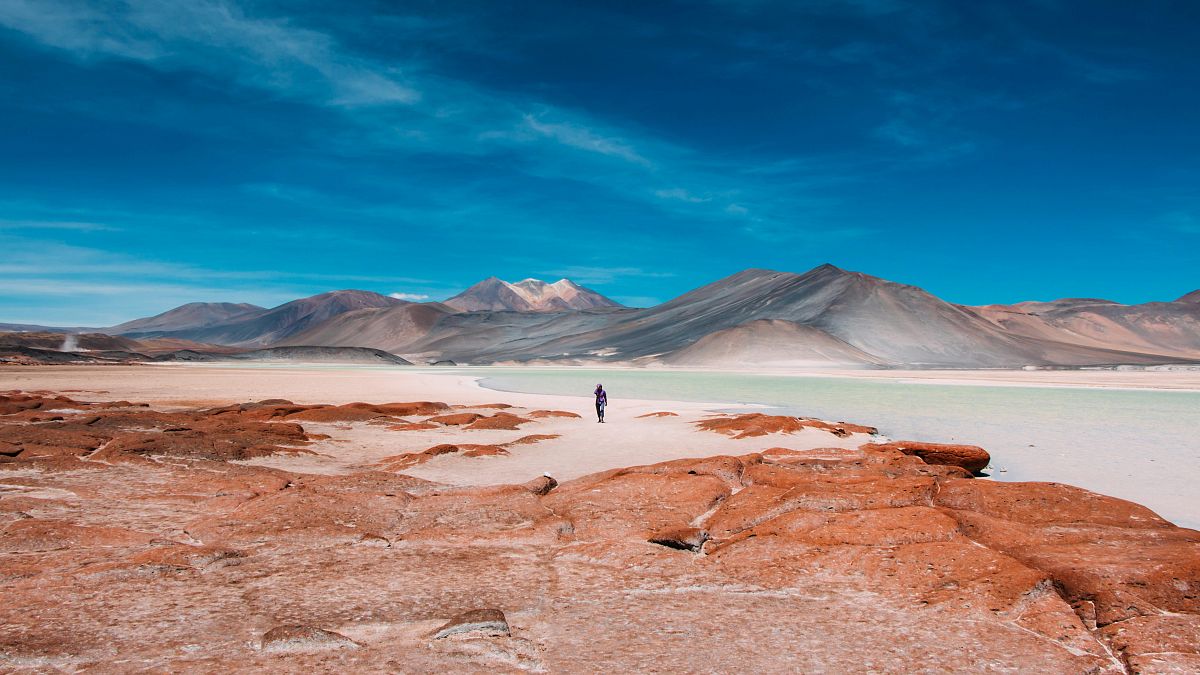Chile has long drawn adventure seekers and nature lovers to its diverse landscapes.
With attractions from the driest desert on earth in the north to lush forests, glaciers and fjords in the south, the South American country is ideal for venturing into the wilderness.
Now, the nation wants to boost its commitment to conservation and sustainable travel experiences to ensure its ecosystems and biodiversity are protected.
Here’s how Chile is promoting environmentally-conscious tourism that benefits both nature and local communities.
Stargazing and surfing: How to experience the best of Chile’s natural attractions
With deserts, national parks and vast swathes of wilderness, Chile has a wealth of natural attractions to offer.
In the north, the Atacama desert - the driest in the world - is a prime spot for stargazing far away from light pollution.
In the south, Patagonia Park has been expanded with new trails around the Pinturas River Canyon and more areas around the country have received dark-sky sanctuary certifications.
Visitors can follow the Route of Parks to experience several stunning natural highlights from Puerto Montt to Cape Horn.
Travellers can then see how man and nature work in sync in the vineyards of the Colchagua Valley, where you can take wine tours and enjoy tastings.
For sea lovers, Chile’s 4,000-mile coastline offers varied beaches, from surfing hubs like Pichilemu to remote, serene shores in the Atacama.
In the north, La Serena’s beaches are family-friendly, while in the south, Chiloe’s rugged coasts are ideal for nature lovers seeking solitude.
If you want to base yourself in a city, Santiago is close to the wine valleys of Casablanca and Colchagua. Valparaíso offers coastal charm, while the Lake District and Chiloe’s islands provide unique cultural and natural experiences just a short flight or drive away.
Chile boosts sustainable tourism and commitment to conservation
Chile’s tourism board is working to further bolster sustainable tourism with new campaigns.
“While we welcome travellers from all walks, we focus on attracting responsible, high-spend tourists who appreciate sustainable travel,” a spokesperson said.
“This approach helps protect our fragile ecosystems and ensures that tourism positively impacts local communities.”
The country is promoting sustainable tourism by expanding protected areas, supporting rewilding projects and increasing eco-friendly travel options.
“Partnerships with local communities support conservation efforts, and many hotels and tours focus on low-impact, environmentally conscious practices to preserve natural resources,” the tourism board said.
While overtourism is not a major issue in Chile, the country monitors visitor impacts on sensitive areas. Its strategy includes promoting lesser-known destinations and enforcing visitor limits in popular parks.
In terms of accommodation, the tourist board promotes environmentally-friendly initiatives like eco-lodges Awasi Patagonia and Explora Atacama.


